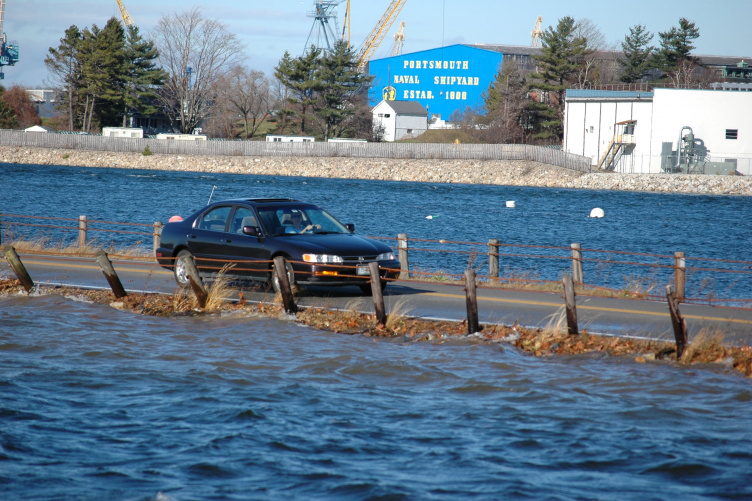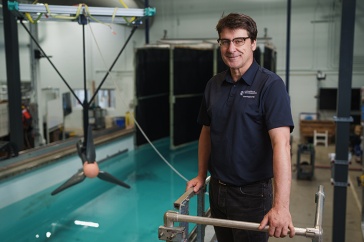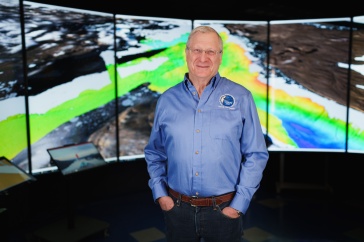

UNH professor Jennifer Jacobs was a lead author on the landmark Fourth National Climate Assessment released last week by 13 government agencies. Jacobs, a professor of civil and environmental engineering, led the report’s chapter on transportation, which found that climate change will diminish the ability of our nation’s transportation infrastructure — the backbone of economic activity — to perform reliably, safely and efficiently.
“Sea level rise, coastal flooding, heavy rain and snow, heat, wildfires, freeze-thaw cycles: We know these are all changing in our changing climate,” says Jacobs, co-director of the national organization The Infrastructure and Climate Network and a leading expert on the effect of climate change on transportation infrastructure. “These impacts are taking a negative toll on our roads, bridges and even rail and air travel networks.”
“Sea level rise, coastal flooding, heavy rain and snow, heat, wildfires, freeze-thaw cycles: These impacts are taking a negative toll on our roads, bridges and even rail and air travel networks.”
America’s transportation assets — roads, bridges, tunnels, airports, rail, ports and public transit — are particularly vulnerable to the climate change impacts of coastal flooding and sea level rise, heavy precipitation and heat. “People often don’t think about heat related to transportation, but so many of our systems break down in extreme heat,” says Jacobs. “We have railroads that are warping, planes that can’t take off or land, roads and bridges that are buckling, public transit systems that aren’t air conditioned.”
The report also assesses and chronicles the vulnerability of America’s rural communities to climate-related disruptions. “That really pops out for me,” says Jacobs, pointing out the devastation wrought by Hurricane Irene in Vermont as an example. “In a lot of these small communities, you’ve got one road in and one road out, and they don’t have the resources, either financial or personnel, to really be able to recover from extreme events. Years can go by before they’re fully recovered.”
In addition to Jennifer Jacobs, UNH professor of civil and environmental engineering, several other UNH researchers contributed to the Fourth National Climate Assessment, which warns that climate change could shrink the American economy by up to 10 percent by the end of the century. Jacobs’s Ph.D. student Jayne Knott, Mary Stampone, the Class of 1941 Associate Professor of Geography and New Hampshire State Climatologist, and Joe Salisbury, research associate professor in UNH's Ocean Process Analysis Laboratory contributed to the Northeast section; and Ph.D. student Melissa Meléndez Oyola contributed to the section on the U.S. Caribbean.
Jacobs began working on the National Climate Assessment two years ago, an all-volunteer process she calls “a huge lift, but amazing.” Now, she says, it’s time to put her scientific contributions, and those of more than 300 other experts, into action.
“Over the past four years we’ve learned a tremendous amount about transportation vulnerability,” she says. “And yet we are still not acting to protect our assets from those vulnerabilities. That’s the current challenge.”
-
Written By:
Beth Potier | UNH Marketing | beth.potier@unh.edu | 2-1566
















































